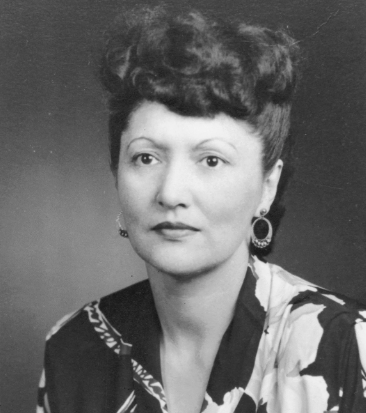Alaska Native civil rights champion Elizabeth Peratrovich, who died on Dec. 1, 1958, has finally had her obituary written by the New York Times.
Feature obituaries appearing in the Times showcase lives of notable men and women from around the world, achievements, and contributions to their field or society as a whole. It is rare for an Alaskan to be featured in a non-paid obituary in the most widely read newspaper in the world.
A new feature called “Overlooked No More” is highlighting the lives of people the Times never got around to noticing. Many of the subjects are women and people of various ethnicities whose lives went unnoticed. The newspaper is playing catch-up for all the extraordinary lives overlooked while Times obituary writers wrote about the achievements of white men who had passed. The series makes for interesting reading.

Born in Petersburg on July 4, 1911, Peratrovich was a member of the Lukaax̱.ádi clan, in the Raven moiety of the Tlingit nation. At a young age, she was orphaned and adopted by Andrew and Mary Wanamaker. Andrew was a fisherman and Presbyterian lay minister.
Elizabeth grew up in Petersburg, Klawock, and Ketchikan. After graduating from Ketchikan High School, she attended Sheldon Jackson College in Sitka, and Western College of Education in Bellingham, Washington.
A Tlingit woman graduating from college was notable for its time. But her later work lobbying for civil rights for Alaska Natives is what made her an icon. She and her husband Roy rallied Natives to ensure the passage of the 1945 Anti-Discrimination Act, the first anti-discrimination law in the United States. The Territorial Legislature passed the bill on Feb. 6, 1945, nearly two decades before the Civil Rights Act of 1964 was signed into law.
At the time in the Territory of Alaska, Natives endured deep discrimination in housing and public facilities. Some merchants had signs on their doors that read “No Natives Allowed.”
In Alaska, Elizabeth Peratrovich Day is Feb. 16. Gov. Michael Dunleavy issued a proclamation, recognizing her contributions to Alaska and the nation.
Here are the first few paragraphs from the New York Times “Overlooked” obituary of Elizabeth Peratrovich:
“It was hardly the first affront. They had grown up in a segregated Alaska: separate schools, hospitals, theaters, restaurants and cemeteries. But for Elizabeth Peratrovich and her husband, Roy, Tlingit natives, the sign they spotted in Alaska’s capital one day in late 1941 was the final straw.
“No Natives Allowed” read the notice on a hotel door.
“The proprietor of Douglas Inn does not seem to realize that our Native boys are just as willing as the white boys to lay down their lives to protect the freedom that he enjoys,” they wrote in a letter to Ernest Gruening, the territory’s governor, signaling the start of their campaign to fight discrimination in Alaska.
Calling such open bias “an outrage,” the couple continued, “We will still be here to guard our beloved country while hordes of uninterested whites will be fleeing South.”
Gruening agreed with the Peratroviches, and they joined forces. In 1943, they attempted to usher an antidiscrimination bill through Alaska’s two-branch Territorial Legislature. It failed, with a tie vote of 8-8 in the House.
[Read the New York Times obituary of Elizabeth Peratrovich here]
